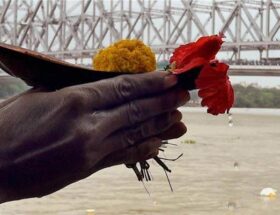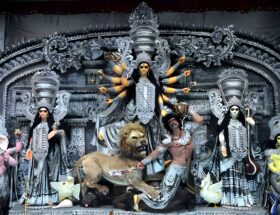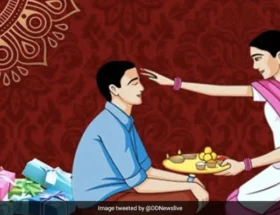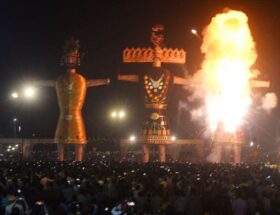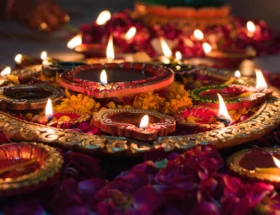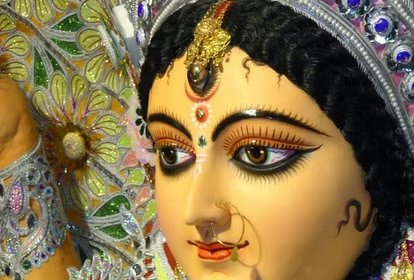
Navratri Festivals: Devi Durga’s journey to her own home
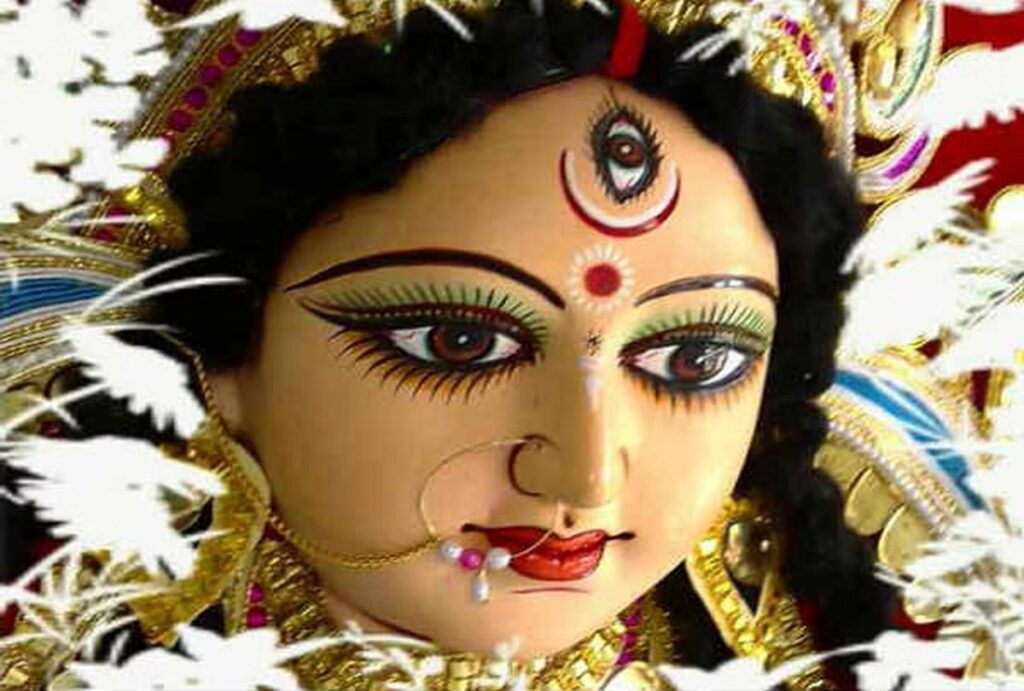
Navratri is not just a festival; it’s an embodiment of devotion, culture, and spirituality. With its roots deeply ingrained in Indian traditions, Navratri marks the triumph of good over evil and the victory of light over darkness. This article takes you on a journey through the vibrant celebration of Navratri, providing insights and answers to your questions.
Introduction
Navaratri, a Sanskrit word meaning “nine nights,” is one of India’s most cherished festivals. People celebrate it with immense zeal and fervor, transcending regional and cultural boundaries. This festival worships the goddess Durga and her various forms over nine days and nights. To truly understand the essence of Navaratri, let’s delve into its various facets.
Navratri: A Cultural Extravaganza
Navaratri is not just about worship; it’s a celebration of life itself. Each night of this festival dedicates itself to a different form of the goddess Durga. People dress in colorful traditional attire, dance the energetic Garba and Dandiya Raas, and create stunning decorations. Communities come together during this time to revel in the joy of togetherness.
The Significance of Navratri
Navaratri symbolizes the victory of good over evil, as it commemorates the goddess Durga’s battle against the demon Mahishasura. The nine nights are believed to represent the nine forms of Durga. Devotees seek blessings, strength, and protection from the goddess during this auspicious time.
Navratri Traditions Across India
India’s diversity is reflected in the myriad ways Navaratri is celebrated across the country. In Gujarat, it’s all about the energetic Garba dance, while in West Bengal, Durga Puja takes center stage. In the southern states, the dolls and figurines displayed during Golu are the highlight of the festival. Explore the unique traditions and rituals of Navaratri from region to region.
The Joyous Garba Dance
One of the most exciting aspects of Navaratri is the Garba dance. People come together in colorful attire and dance in circles, celebrating the goddess’s presence. The rhythmic beats of the dhol and the clinking of dandiya sticks create an electrifying atmosphere that’s hard to resist.
Delicious Navratri Special Food
No festival is complete without delicious food. During Navaratri, people observe fasting and enjoy special dishes that are not only scrumptious but also in line with the dietary restrictions of the festival. Explore the mouthwatering Navaratri recipes that add flavor to the celebrations.
Navratri: A Time for Reflection
Beyond the festivities, Navaratri is also a time for introspection and spiritual growth. It’s an opportunity to cleanse the mind, body, and soul. Many devotees undertake fasting and meditation during this period to attain spiritual enlightenment.
Navratri Outfits: A Riot of Colors
Traditional attire plays a crucial role in Navaratri celebrations. People, especially women, adorn themselves in colorful and vibrant dresses, reflecting the festive spirit. Learn about the significance of different clothing styles during this auspicious time.
FAQs
What is the origin of Navratri? Ancient Indian mythology traces the origin of Navratri, where it symbolizes goddess Durga’s victory over the demon Mahishasura.
Why does Navratri last for nine nights? Navaratri lasts for nine nights to honor the nine forms of goddess Durga, each with its unique significance.
Is Navratri only celebrated in India? While Navaratri is most prominent in India, Indian communities worldwide also celebrate it.
What are the key rituals during Navratri? Key rituals during Navaratri include fasting, worship, Garba and Dandiya Raas dances, and creating colorful decorations.
What are some popular Navratri dishes? Popular Navaratri dishes include Sabudana Khichdi, Kuttu Ki Roti, and Singhara Halwa, all prepared without onions and garlic.
How can I participate in Navratri celebrations if I’m not Indian? You can participate in Navaratri celebrations by joining local events organized by Indian communities or learning about the festival’s significance.
Conclusion
Navaratri is not just a festival; it’s an embodiment of culture, spirituality, and devotion. It’s a time when people come together to celebrate life, seek blessings, and rejoice in the victory of good over evil. Whether you’re a devotee or just someone curious about Indian culture, Navaratri offers a unique and enriching experience.

